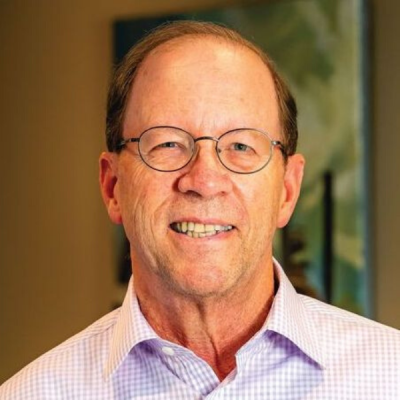Morality and Atheism: Who Makes The Rules?

We live in a time where people are truly perplexed over what has gone wrong with our world. There seems to be so much instability in people’s lives. When you look into what’s happening within our culture and world, there seems to be so much moral confusion. How does a modern person determine what is right or wrong?
Max Hocutt, professor of philosophy at the University of Alabama says:
“The fundamental question of ethics is, who makes the rules? God or men? The theistic answer is that God makes them. The humanistic answer is that men make them. This distinction between theism and humanism is the fundamental division in moral theory.”
Hocutt is correct. The problem then becomes if morals and ethics are determined by men, who makes these decisions? Who determines how we ought to live? How should we conduct our lives?
To personalize it, how do we determine what is moral if there is no God who reveals to us what is right or wrong? Is it determined by our feelings, by our ability to reason?
If there is no God, who or what is a guiding force in our lives? We must conclude what Richard Dawkins rationally describes in his bookRiver Out of Eden:
“In a universe of blind physical forces and genetic replication, some people are going to get hurt, other people are going to get lucky, and you won’t find any rhyme or reason to it, nor any justice. The universe we observe has precisely the properties we should expect if there is at bottom, no design, no purpose, no evil, and no good. Nothing but blind pitiless indifference, DNA neither knows or cares. DNA just is. And we dance to its music.”
Think about what he said. If God does not exist, then what are we as human beings? We are purposeless products of biological evolution, which means all morality is subjective. It is based on your opinion.
This has such an impact on a culture when there is no moral compass. You just follow your DNA, wherever it leads you. Richard Dawkins admitted this in a radio interview with radio host Justin Brierley, as Dawkins makes it clear that human morality is nothing more than the outcome of the evolutionary process:
Brierley: “When you make a value judgment, don’t you immediately step yourself outside of this evolutionary process and say that the reason this is good is that it’s good? And you don’t have any way to stand on that statement.”
Dawkins: “My value judgement itself could come from my evolutionary past.”
Brierley: “So therefore it’s just as random in a sense as any product of evolution.”
Dawkins: “You could say that…Nothing about it makes it more probable that there is anything supernatural.”
Brierley: “Ultimately, your belief that rape is wrong is as arbitrary as the fact that we’ve evolved five fingers rather than six.”
Dawkins: “You could say that, yeah.”
This is astonishing that the world’s most prominent atheist could not emphatically say that rape is immoral. Though he may not believe this is true within his heart, he seeks to be a consistent Darwinian atheist.
However, Dawkins does believe that it is not good for a society always to follow Darwinian morality because it is “ruthless.” He says,
“I have always said that I am a passionate anti-Darwinian when it comes to the way we should organize our lives and morality. We want to avoid basing our society on Darwinian principles.”
Dawkins, on the one hand, says that we live our lives based on our DNA, but then introduces a moral code by telling us not to follow our DNA. The more I read of Richard Dawkins, the more I recognize how inconsistent he can be.
The individual who has had the most to say about atheism and morality is the great German philosopher Friedrich Nietzsche. He clearly stated that there is no absolute right or wrong. For this reason, he had much contempt for Christianity, because it elevated such beliefs as love, morality, and humility. You can’t build a civilization of power on these beliefs.4
Nietzsche predicted that the English-speaking world would seek to abandon a belief in God, but would attempt to hold on to Christian values. However, he predicted correctly that when societies reject God, Christian morality itself will eventually disappear. The reason is because it will be more difficult to motivate people to be moral, for they will naturally follow their selfish instincts and desires.5
Dr. Arthur Leff, now deceased, was a brilliant professor at Yale Law School. Back in 1979, he published an article in the Duke Law Journal titled “Unspeakable Ethics, Unnatural Law.” Today, it’s considered a very important and prominent essay. It is uncertain what Leff believed about God, but what troubled him was that if there is no God, then there’s no way that one can make any kind of case for human morality, particularly human rights. Here is a paraphrased summary of what he said:
You can say it is wrong for a majority to take advantage of any minority by force, but that is an opinion and not an argument. You can assert all sorts of things, but what you cannot do is say one point of view is morally right and all others are not. If someone says it is all right to enslave a minority, and you say no, it is wrong, who is to say your view of morality is right and theirs is wrong? Maybe it helps to frame it this way: if there is no God, who among us gets to impose their will on everyone else? Who gets to establish the moral laws that people are to follow? These questions are so intellectually troubling that you would think there would be more legal and ethical thinkers trying to come to grips with this.
Leff’s words suggest that if there is a God, then He would make the law for us to follow. We’d base our law on Him. And this, by the way, is how Western civilization was built, with biblical truth as its foundation. We require a moral foundation on which to build a culture. As T.S. Eliot penned many years ago:
“It is in Christianity that our arts have developed; it is in Christianity that the laws of Europe… have been rooted.”
Returning to Leff’s argument, his words also suggest that if there is no God, then moral law has to be grounded in human opinion. So, we must ask, who gets to establish their human opinion as law so that everyone has to obey it? Why should your view of morality have privilege over my view? Ultimately, what you end up with is that those in power will make sure their moral values prevail. Of course, that’s what happened in Nazi Germany.
I close with this quote from Charles Malik, Former Lebanese Ambassador to the United States, President of the United Nations General Assembly:
“There is truth, and there is falsehood. There is good, and there is evil. There is happiness, and there is misery. There is that which ennobles, and there is that which demeans. There is that which puts you in harmony with yourself, with others, with the universe, and with God, and there is that which alienates you from yourself, and from the world, and from God...The greatest error in modern times is the confusion between these orders.”
Get your copy of Richard’s newest book Reflections on the Existence of God on Amazon or at reflectionsontheexistenceofgod.com. Preview Chapter 1 for free here!

Richard E. Simmons III is a Christian author, speaker, and the Executive Director of The
Center for Executive Leadership, a non-profit, faith-based ministry in Birmingham, Alabama.
His best-selling titles include The True Measure of a Man, The Power of a Humble Life,
Wisdom: Life's Great Treasure, and his newest book, Reflections on the Existence of God.
Follow Richard on Facebook, Instagram, and LinkedIn @thecenterbham. Tune in to
Richard's Reliable Truth Podcast on your favorite podcast app.






